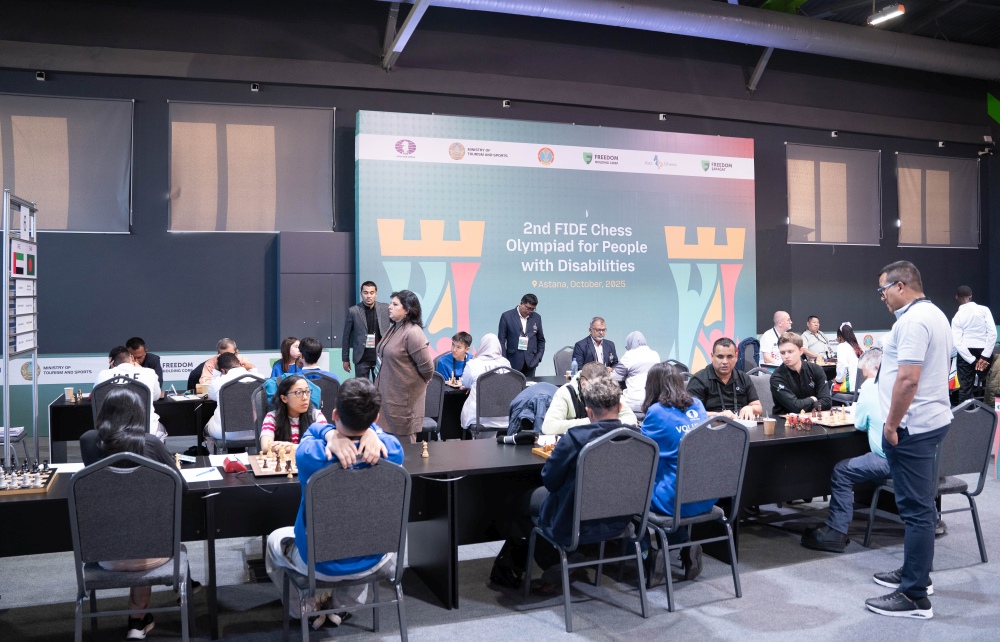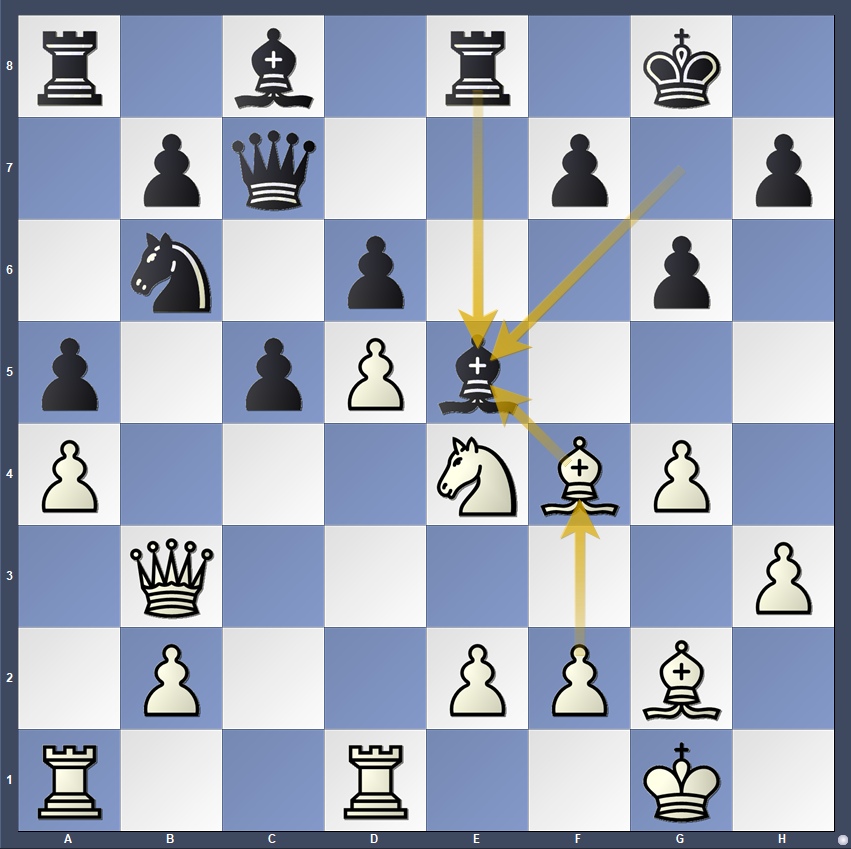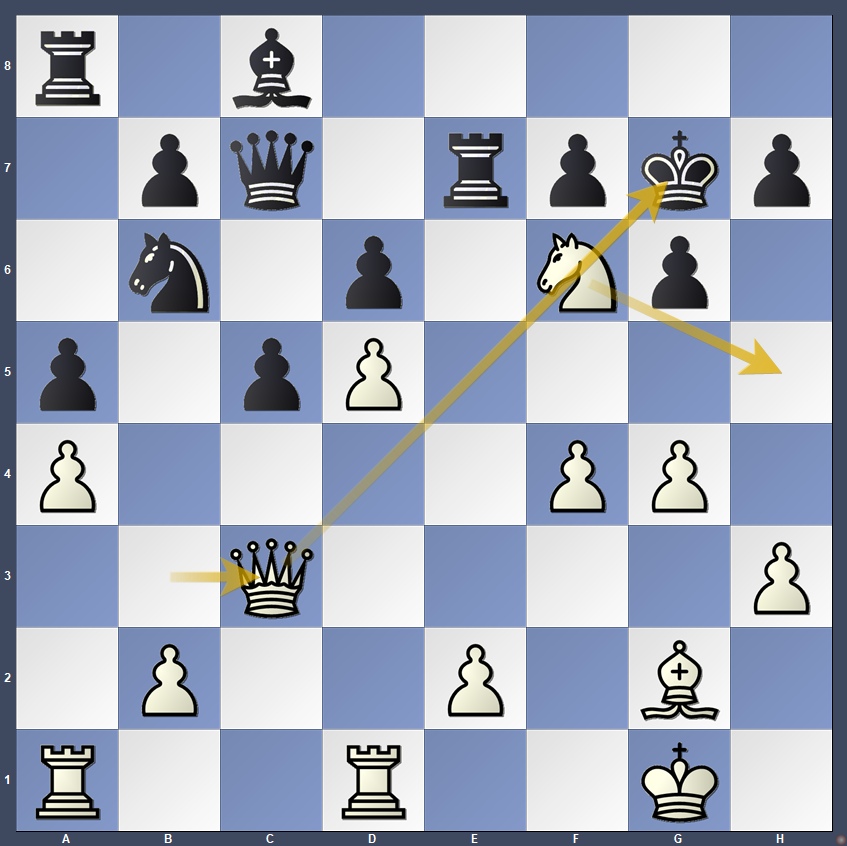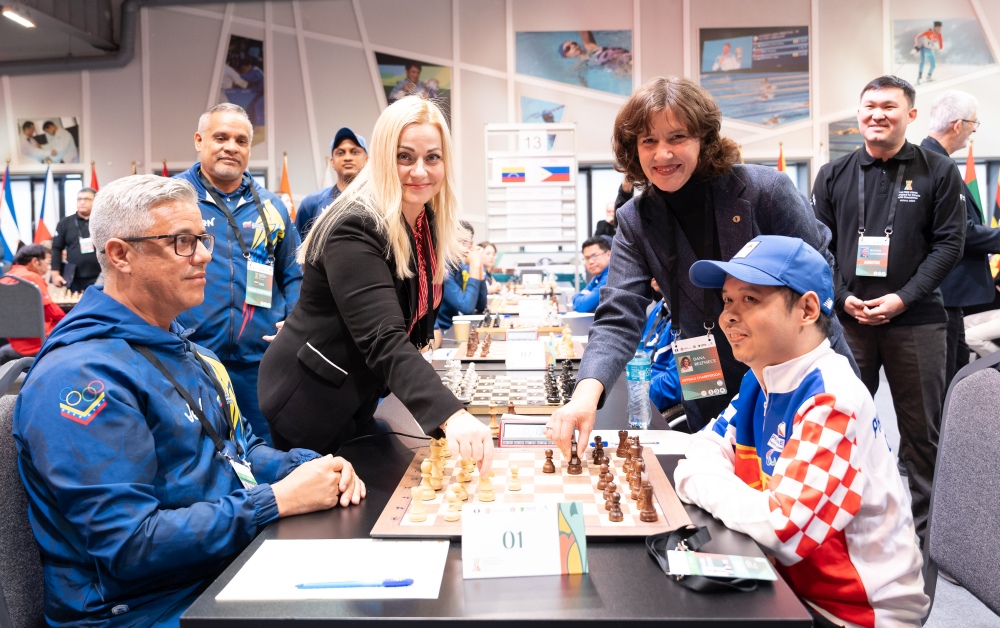
The atmosphere at the Paralympic Training Centre in Astana remains full of energy and inspiration as the 2nd FIDE Chess Olympiad for People with Disabilities continues into its second day.
For many players, simply being here is already a victory – a triumph of willpower and perseverance over life’s challenges. Each move made across the chessboards carries a deeper meaning: determination, pride, and unity.
Ceremonial first move with a message
At the start of Round 2, the ceremonial first move was made by the Ambassador of Venezuela to Kazakhstan, Rosalba Lo Bué Antico, together with FIDE Deputy Chair of the Management Board, WGM Dana Reizniece.
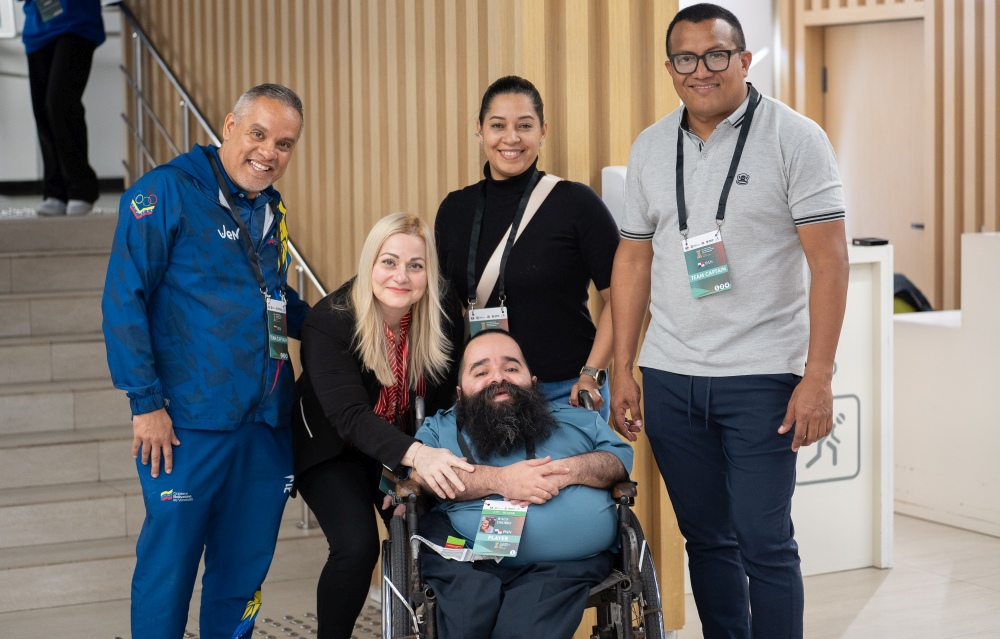
Ambassador Lo Bué Antico shared a heartfelt message about the event’s importance:
“Today, in this 2nd Paralympiad for People with Disabilities, we see with great promise the possibility that Venezuela can develop major projects to promote chess – not only for people with disabilities, but also through educational programs in Venezuelan schools. Kazakhstan is a worthy example for Venezuela and the world.”
Her words reflected the spirit of the Olympiad – an event that transcends competition and aims to make chess a global force for inclusion and opportunity.
Dana Reizniece, who also made the ceremonial first move, expressed deep admiration for the players and organizers:
“For me, it is not only 34 teams representing countries – for me, it’s 34 teams of people who are champions of their lives. They have a super strong character, and they are very humble. When you speak with them, you see it.”
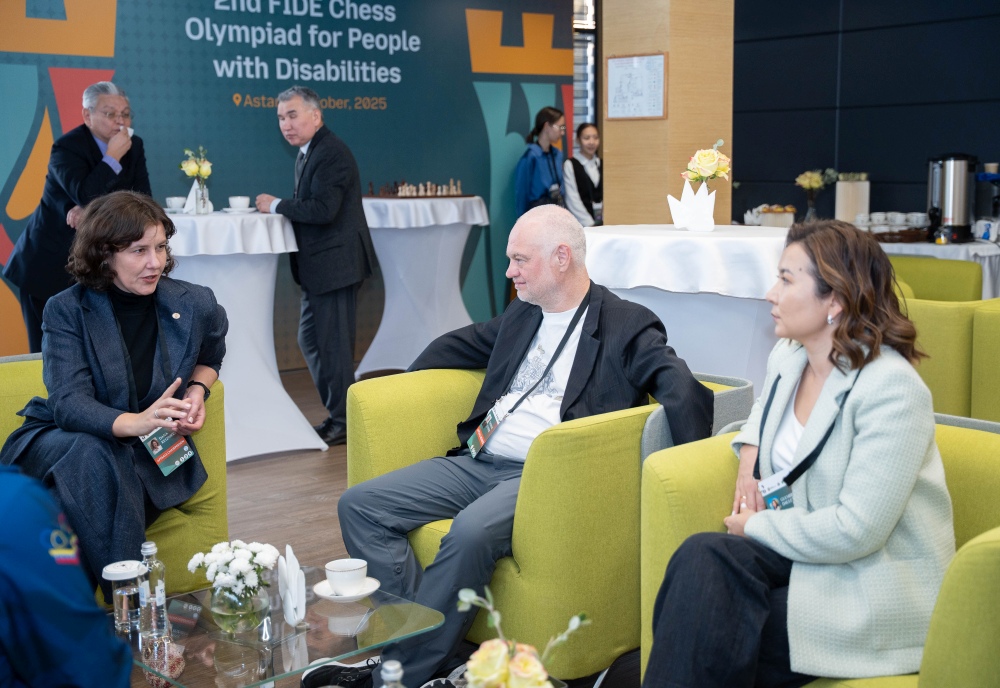
She praised the work behind the event’s organization:
“The local organizers here in Kazakhstan made it possible not only with finances – thanks to Freedom Finance, the Kazakhstan Chess Federation, Astana Municipality, and the Government – but also by being brave enough to organize such an event.”
Reflecting on the Olympiad’s evolution, Dana Reizniece added:
“Many things have been improved. We know that there are many things that we can do even better – for example, invite more teams and provide this opportunity to play for even more countries worldwide.”
And on the inclusivity of chess, she concluded:
“Chess is, if not the, then one of the most inclusive sports – where people with disabilities or special abilities can play at the same level as professional players who have dedicated their whole lives to the game.”
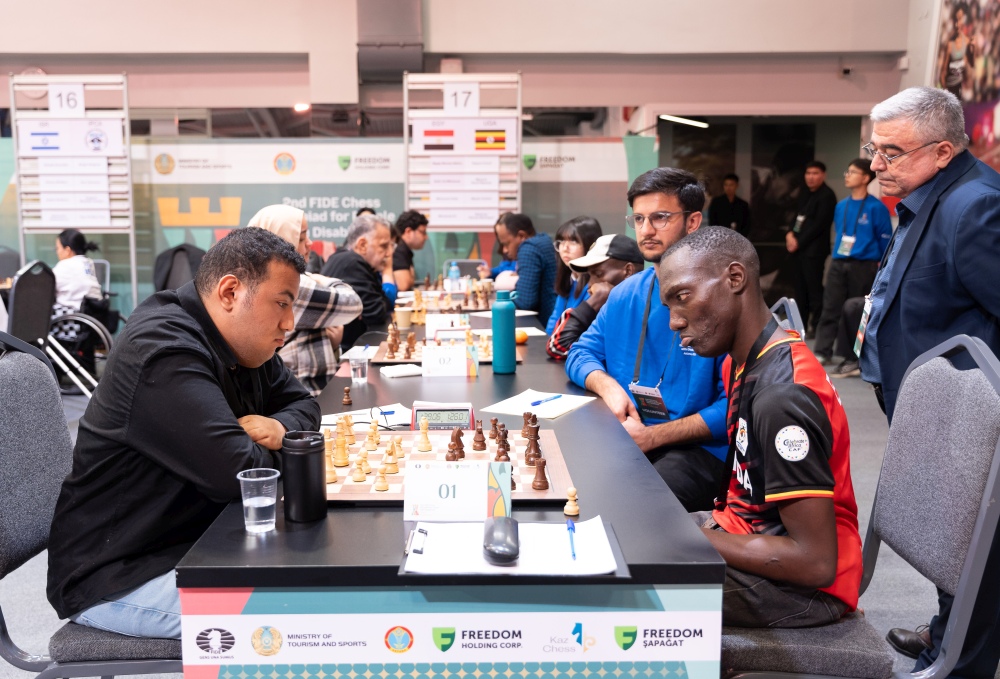
Inside the venue: Focus, friendship, and power of chess
The Paralympic Training Centre in Astana – one of the most advanced accessible sports facilities in Central Asia – has become not only the stage for intense chess battles, but also a welcoming home for connection and community.
Beyond the playing hall, the resting area offers players a place to relax, analyze games, and socialize. The atmosphere is warm and uplifting – filled with conversation, laughter, and mutual respect.
When asked to describe chess in one word, players offered answers that capture the essence of the game:
“Life. Love. Luck. Tenacity. Enjoyment. Pressure. Emotion. Equality.”
For many, chess has been more than just a sport – it’s been a lifeline. As Roberto Fernando Elías, the Argentinian Chess Champion for the Blind, shared:
“I’ve had my disability since the age of six. I believe that chess helped me avoid isolation and dedicate my time to a wonderful sport like chess. I’d like to express my gratitude to FIDE for creating this event.”
His words mirror the feelings of many players who see this Olympiad as not only a competition, but a celebration – a place where friendships are formed and the joy of chess shines through.
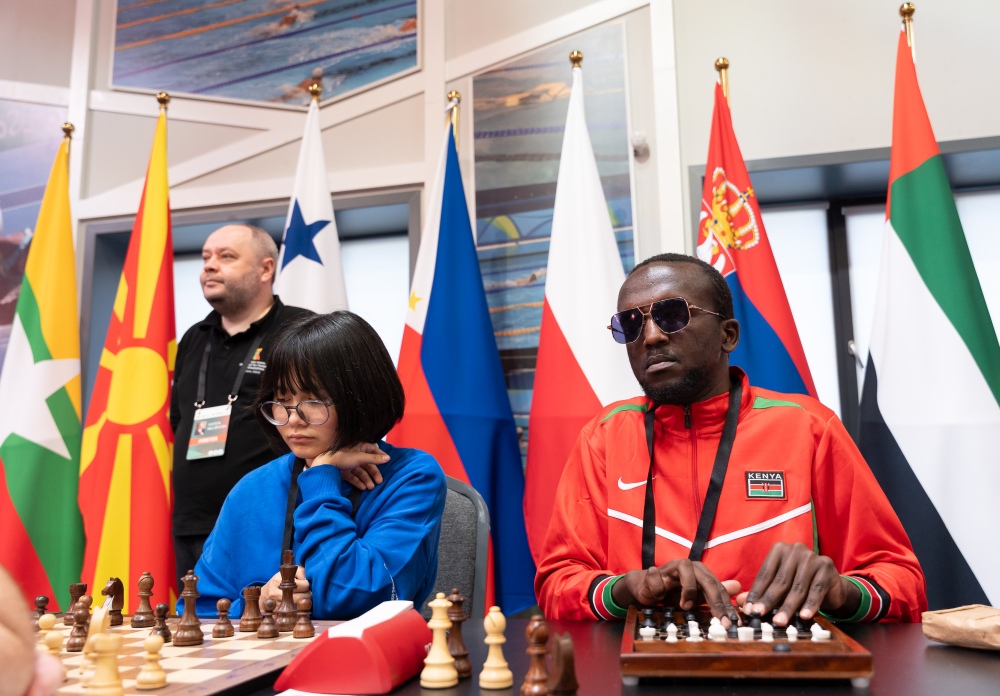
Position of the day: The art of trading pieces
Many players believe that trading pieces leads to equality or draws. However, as today’s position of the day shows, every trade must be carefully evaluated.
In the game between Axadxon Kimsanboyev (Uzbekistan) and Valeria Simone (Argentina), a critical mome nt arose:
Black offered a bishop trade with 21. … Be5? to defend her d6-paw (21…Re5, sacrificing an exchange was a better option). Although logical, this decision proved costly – after the bishops exchange 22. Bxe5 Rxe5 the rook was kicked from the e5 with 23. f4 Re7 while Black’s dark-square became extremely vulnerable. A precise knight jump to f6 – 24. Nf6+ Kg7?, followed by 25. Qc3, sealed the fate of the game and the Argentinean player resigned, facing deadly threats.
This instructive moment reminded everyone that in chess – as in life – not all trades are equal. Every exchange carries consequences, and true mastery lies in knowing when to simplify and when to keep the tension.
Round 2 results
After two rounds, seven teams – Poland, USA, Cuba, Israel, Philippines, IBCA, and FIDE 1 – are in the lead with a perfect 4/4 score.
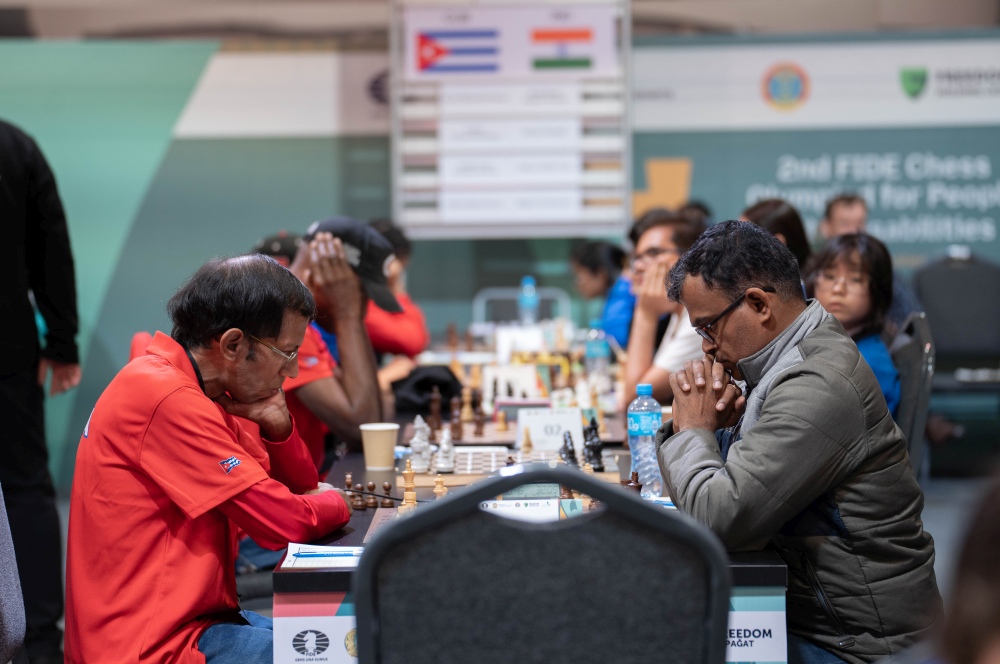
Full results and pairings for Round 3 are available on Chess-Results.
A message beyond the board
As the 2nd FIDE Chess Olympiad for People with Disabilities unfolds, it continues to highlight the unifying power of chess – a game where every move counts, and every participant inspires. For the players, organizers, and everyone watching, the message is clear: The board has no boundaries – and the spirit of the game belongs to everyone.
Official website: dis-olympiad2025.fide.com/



